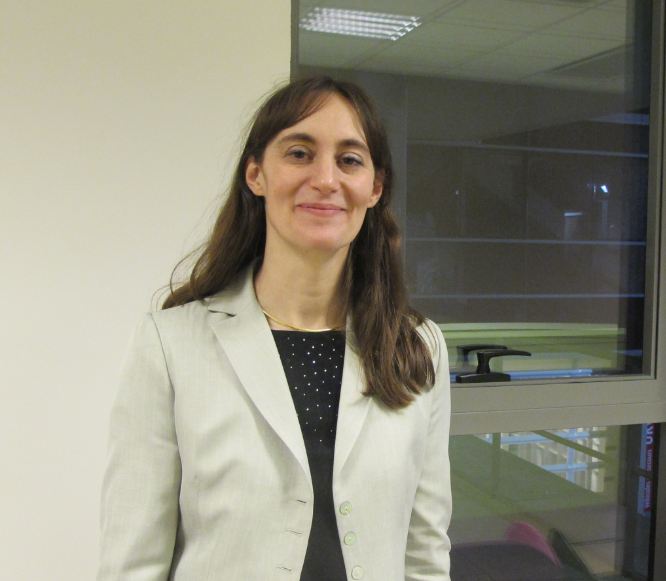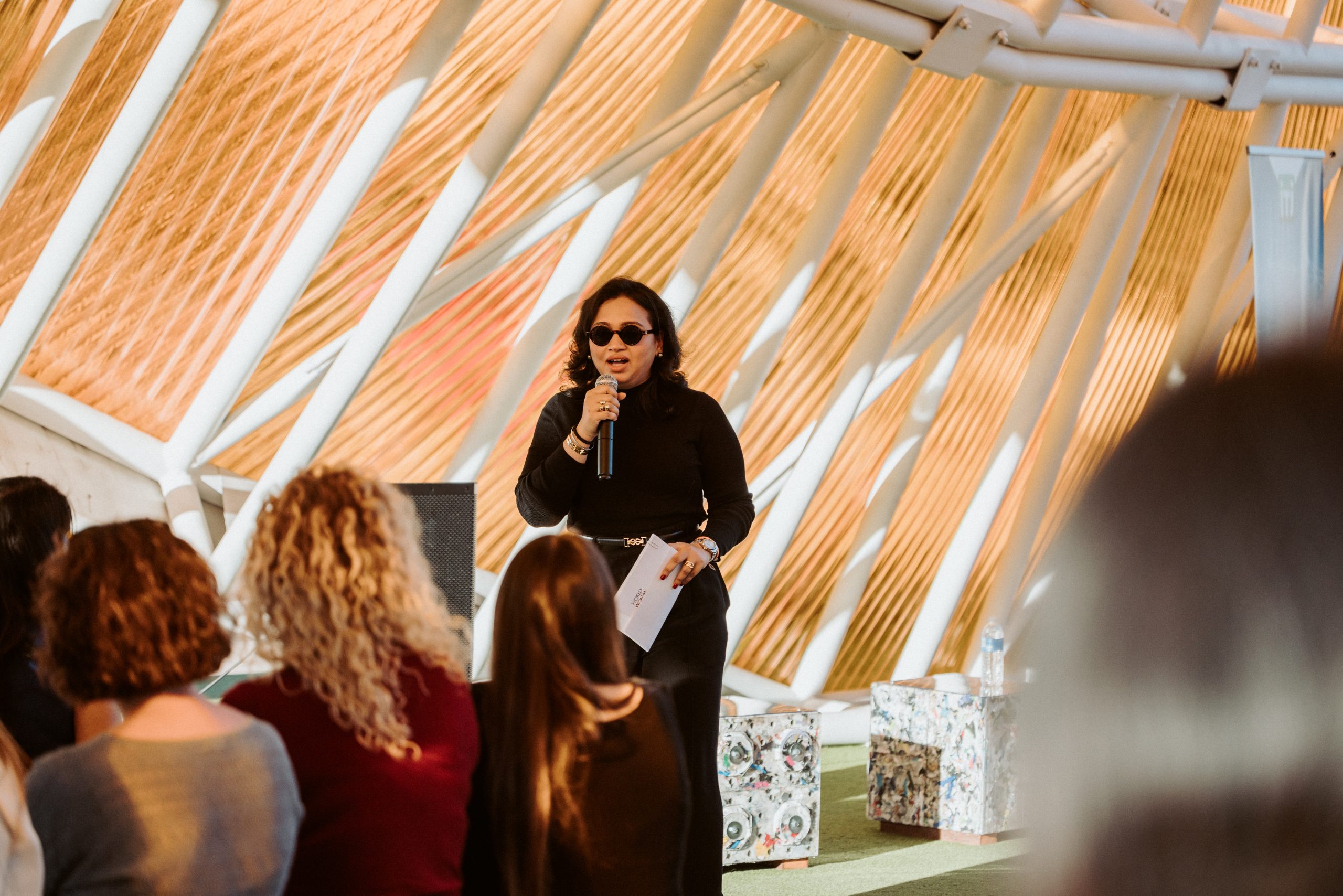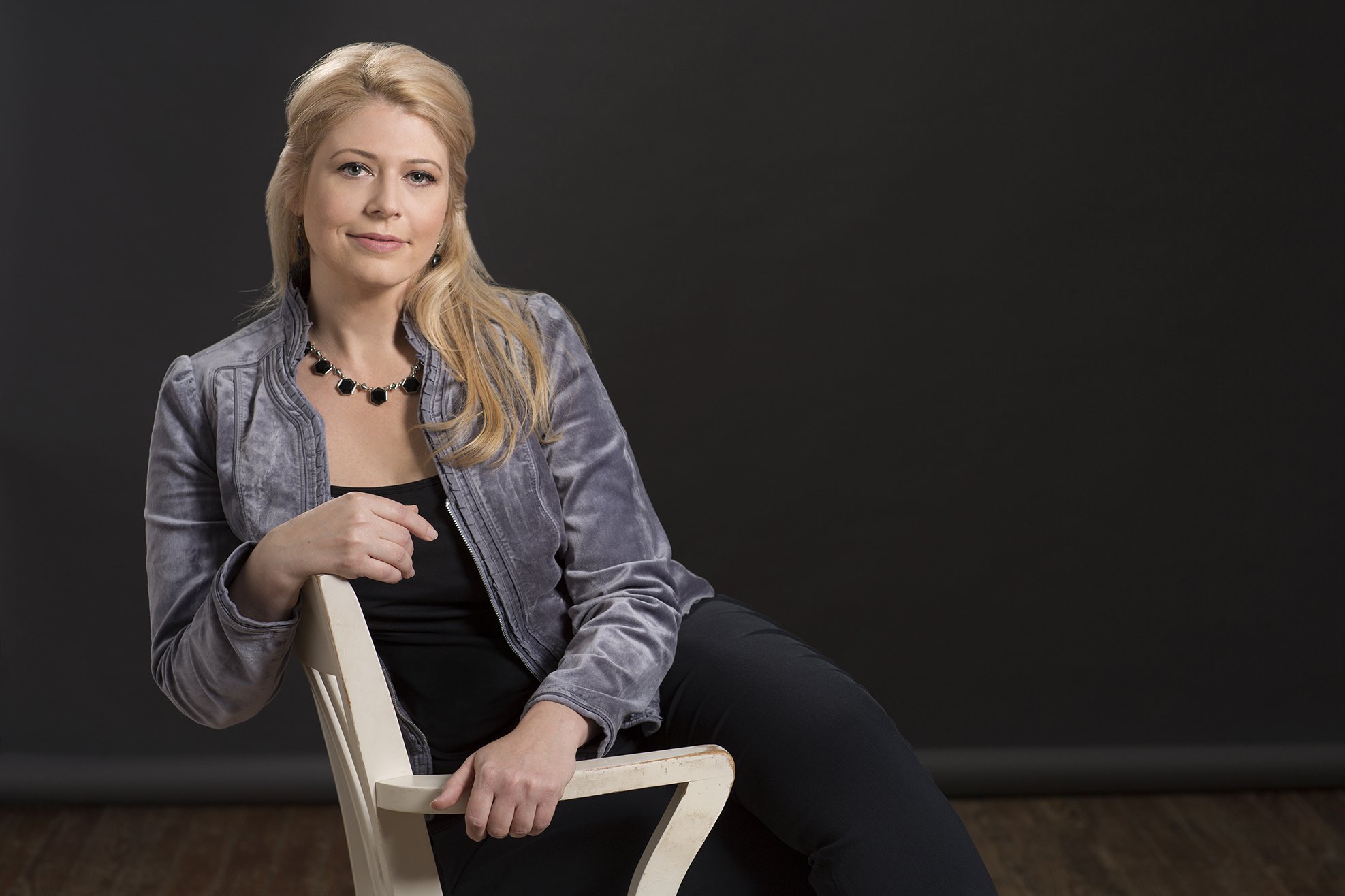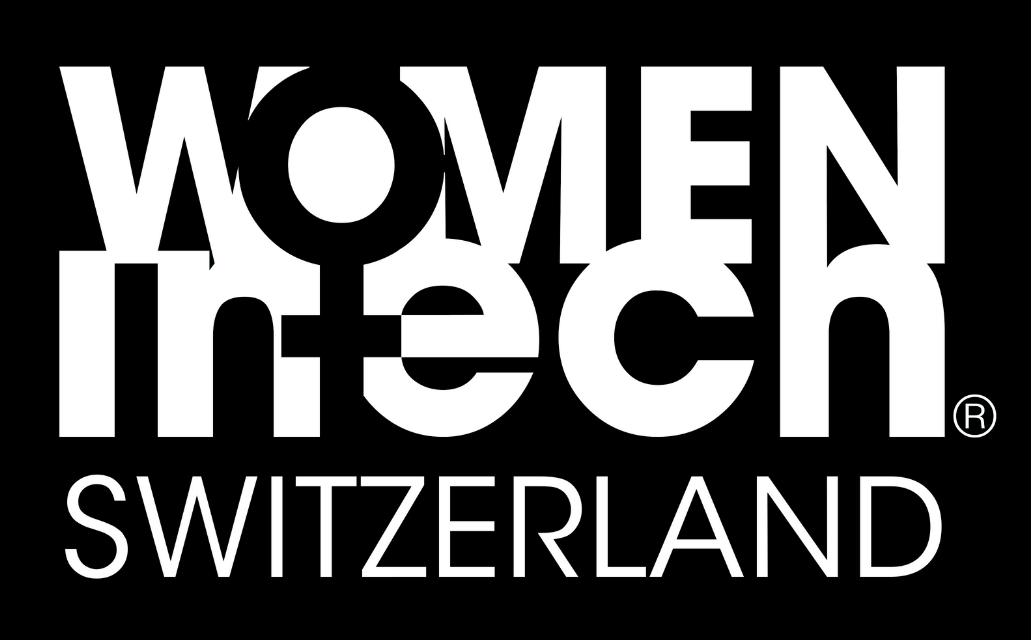World Woman Hour, in partnership with Organon, honors a woman who leads research, medical practice, and public awareness in the field of reproductive health and medicine. Dr. Nathalie Massin says her goal is “empowering women to create the life they want, which includes having a child, if and when they want.” New advances in fertility treatment are enabling more women to realize this dream—even if they wish to bear children later in life—and Nathalie has been at the forefront of these developments.
A graduate of Pierre and Marie Curie University in Paris, she is president of FFER (Fédération Française d’Etude de la Reproduction: the French Federation for the Study of Reproduction), and until recently served as president of France’s Society for Reproductive Medicine. Nathalie is also known for advancing scientific and public debates over infertility prevention and testing.
Dr. Massin’s clinical base is the Créteil Intercommunal Hospital Center, in the suburbs of Paris. As head of the Reproductive Medicine Department at Créteil, she has pioneered programs to make fertility counseling and services more widely available. In addition she is an associate professor at UPEC, the University Paris-East Créteil. Here are edited highlights from her interview with World Woman Hour.
Q: What brought you to this field, and why are you passionate about it?
Nathalie: I knew I wanted to be a doctor when I was nine. It was a shock when I felt my mother was going to die bad pneumonia. The second shock I had was in my second year of medical school, when I saw my first embryo through a microscope, and then the transfer in the uterine cavity of a woman who was trying to have a baby for years. I knew at that time that I wanted to be a reproductive specialist acting for women’s health. Reproduction is one of the main parts in the life plan of a woman. It impacts the well being of women as well as their children.
Q: You have advocated for education about reproduction and fertility, both in schools and for adults. Could you speak to why this is important? And perhaps point out some things that are not widely known?
Nathalie: Women need empowerment. It can be provided by good information about all the things they want to have in their lives, and one of the most important things for a woman is having a baby. Fertility education for both boys and girls, as well as information for young people, is empowerment for creating the life they want—including a child, if and when they want.
For example, oöcyte cryopreservation could deliver women from the pressure of the inevitable decline in fertility with aging. I want women to be aware of what is possible in terms of reproduction, so that they can make more informed decisions to help them to plan their lives.
The new generations want more and more to plan their lives, and while society puts a lot of pressure on women to conceive a child, the chances of success are unfortunately getting lower. There has been a global decline in birth rates, mainly due to the postponing of the desire for pregnancy to a later age. Today, women are studying more and improving their socio-economic situation. They also still feel young at a higher age, but they are exposed to a decline in fertility as time goes by. This can be aggravated from prolonged exposure to substances that are endocrine disruptors, which cause damage to both women’s and men’s fertility.
Q: What does the future of health care look like to you? Will women play more of a leadership role in the system; will there be advances in reproductive care?
Nathalie: The future is already here. In the last two decades, the health care community has changed a lot in France. Women are taking more and more positions, but still usually lower positions. However, women patients can now choose a female health care professional, and this can make a difference for them. Overall, with more women in the health care system, there is more empathy and more patient-centered care, and this is welcome for both men and women.
Also, France has made a big step with the evolution of our policies. Since September 2021, female couples and single women are now allowed to have access to fertility treatment, as equally as heterosexual couples. So no woman is left out in the journey of being a mother, when we now face a global decline in birth rates.
Q: What changes still need to be made?
Nathalie: We put a lot of pressure on women, actually, but we need men to take responsibility. First, because they are a big part of the postponement of having children. It’s not only their partners who delay this. And second, because men are directly involved in the cause of infertility in 50% of cases. So we will need to change our way of thinking. Reproduction is not only a woman’s program. Men are important to support reproduction in our modern families.
And it has been proven that young people and adults’ lack of knowledge of fertility is an issue, for both men and women. Also, I have been overwhelmed to see that in access to health care around the world, women and girls are disproportionately impacted by lack of resources.
Q: Looking back at your career journey, could you share some personal lessons you have learned?
Nathalie: During my journey I learned it’s difficult to be a woman in a man’s world, and to be at the same time a good mother and a professional. This means that you have to put your best foot forward in your agenda every day, so you really need to be passionate about your work to get the opportunities you deserve.
Persistence is important, too. After I raised my children and developed my reputation in a public hospital, when I finally asked to become a university professor, I was told I was too old to run for it. It was really disappointing, and although the answer was not what I was looking for, in fact I felt empowered to take action and go further. I developed a school for advanced training in ultrasound for female fertility evaluation, in addition to a university diploma. I took national action with health care associations, and eventually I became the president of the Society of Reproductive Medicine and now President of the French Federation for the Study of Reproduction.
The lesson is not to give up. When you’re passionate about something and listen to your intuition, you will find a way to do what you want.
Q: Dealing with setbacks or failures is certainly important. Are there particular challenges you have faced in the area of providing good health care for your patients? How did you deal with these?
Nathalie: After 15 years of reproductive medicine, I was still upset about our failures, especially when I met couples who came too late or others who waited three or four years before having access to fertility treatment. Moreover there are simple and non-invasive tests that can be done with some techniques. When we created a fertility checkup for women with my colleagues at Centre Hospitalier Intercommunal de Créteil, we worked rapidly and understood it made a difference. Every acknowledgement we receive from women who need advice on their own reproductive potential, in view of their personal plan of life, convinces us that this is the right way to empower a woman.
Q: Speaking broadly, could you name some ways in which women can lead change for a better world?
Nathalie: Women can lead change for a better world by giving the same education to boys and girls.. Women have a key role in general for children’s and adults’ health, starting at conception, and we need to inform them
Q: Your advice to young women in any field, at any stage of life?
Nathalie: Go ahead and ask for what you deserve. Don’t forget, you can ask for help. Throw away the unfair judgments you are facing. And above all, don’t forget about yourself.
Q: What could they do right now to make a difference?
Nathalie: If you are a young woman or a young man, you probably will ask yourself if you want a baby in your life. One of the important things is to get information early in your life about what it is to have a child and the problems you can have. Conceiving a child is mainly something that happens naturally, but sometimes not, and there are many things in life that can postpone a pregnancy. So it’s important that you have all the knowledge about fertility you can, to make your life like you want—with or without a child.
Q: If you had a billboard that millions of people would see, what message would you write on it?
Nathalie: I would write, “Knowledge and a healthy lifestyle go hand in hand when it comes to fertility.”






























